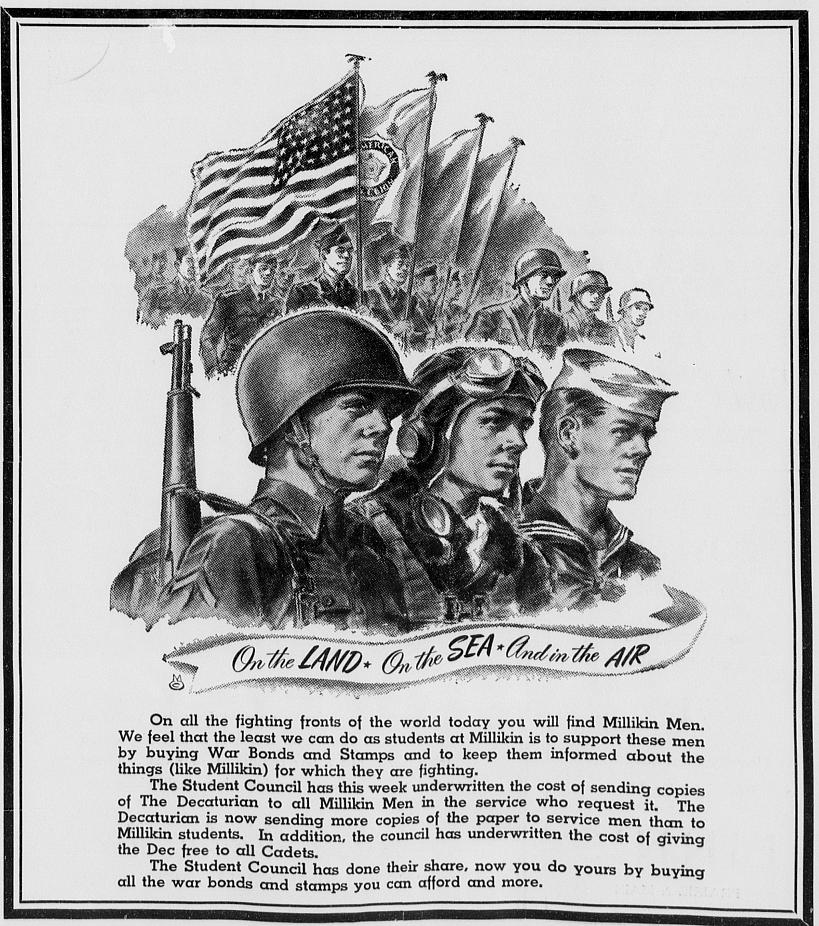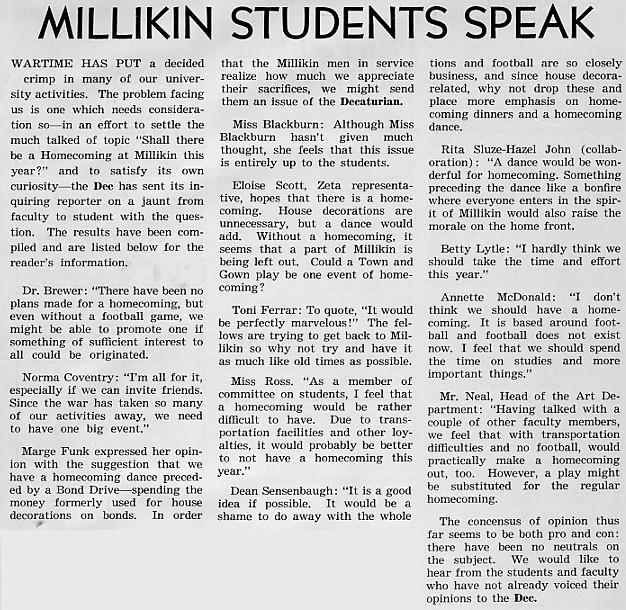Millikin During the Second World War
Just like every other community in the United States, World War II made a tremendous impact on the Millikin University campus. This exhibit tells some of the story of the Second World War from a uniquely Millikin perspective using materials found within the University Archives & Special Collections. This web exhibit was the companion to the physical exhibit found inside Staley Library during the Fall semester of 2007.
Prior to Pearl Harbor
When Nazi Germany invaded Poland on September 1, 1939 to ignite the Second World War in Europe, Millikin University students were just getting ready to return to campus for the 1939-40 academic year. That year's first issue of the student newspaper, The Decaturian, captured the mood on campus favoring "neutrality" on the part of United States. By the end of that academic year, that attitude still seemed prevalent among the student body.
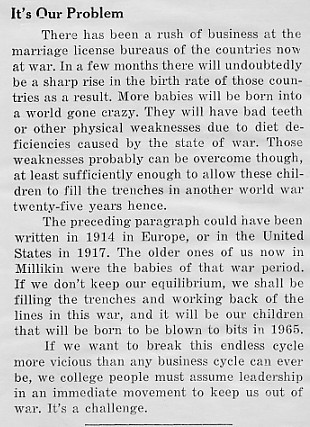 | 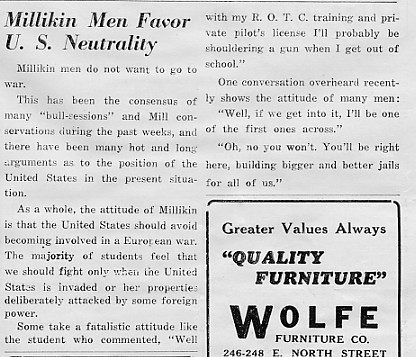 |
| The Decaturian 15 Sep 1939 page 2 | The Decaturian 15 Sep 1939 page 5 |
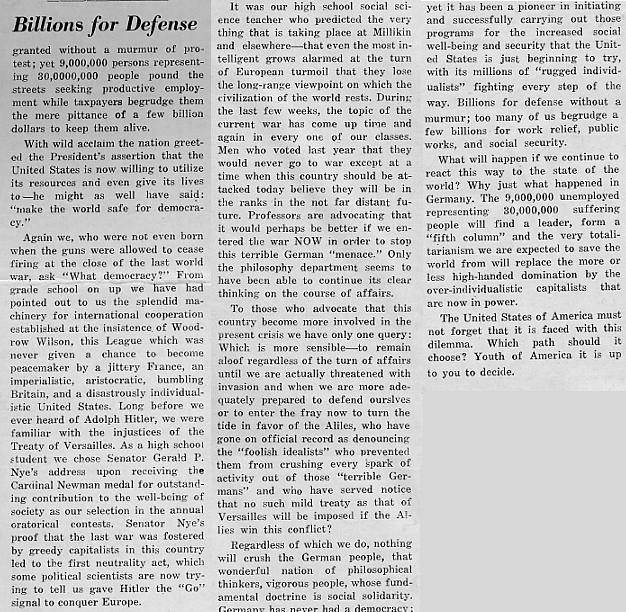 |
| The Decaturian 24 May 1940 page 2 |
As time, and the war in Europe went on, the campus community continued to revisit the world crisis and even offered up some of its own opinions. In the Spring of 1940, history & political science professor Albert Taylor Mills attempted to "defend" the German Kaiser from the First World War before members of Decatur's "University Club," while sophomore student Robert Weiner attempted to raise money to help Jewish refugees from Europe.
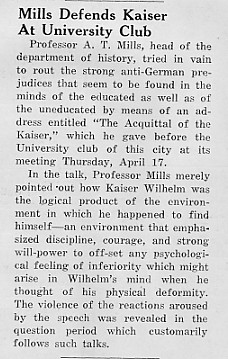 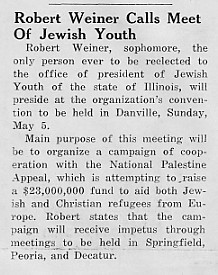 |
| both from The Decaturian 26 April 1940 page 2 |
Even campus entertainment felt the impact of the war as the spring of 1941 play, Margin for Error, was a comedic murder mystery which the 1941 student yearbook, The Millidek, described as being "appropriately concerned with Nazis."
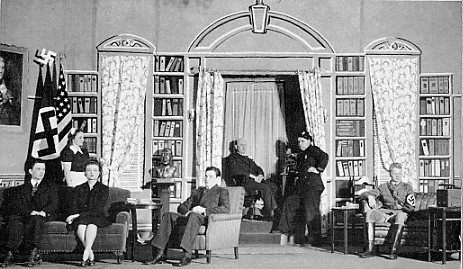 |
| A scene from 1941 production of Margin for Error on the Albert Taylor Hall stage. (from the 1941 Millidek) |
By the fall of 1941, the neutrality attitude was fading, and even self-proclaimed "pacifist" Dean C. L. Miller addressed the student body with a message of "practicality." In just two more months, the "practicality" of war became a "reality.
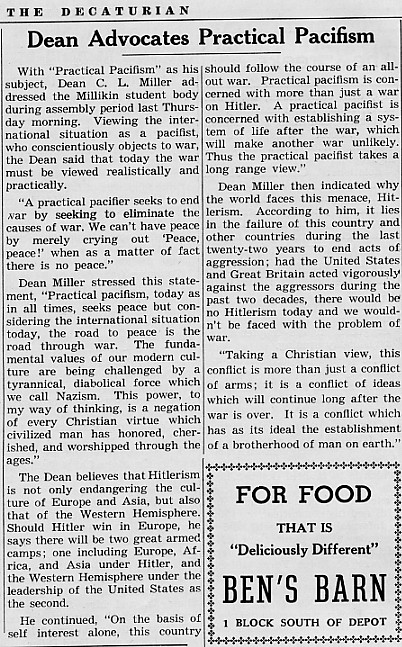 |
| The Decaturian 3 Oct 1941 page 4 |
Pearl Harbor: The US Enters the War
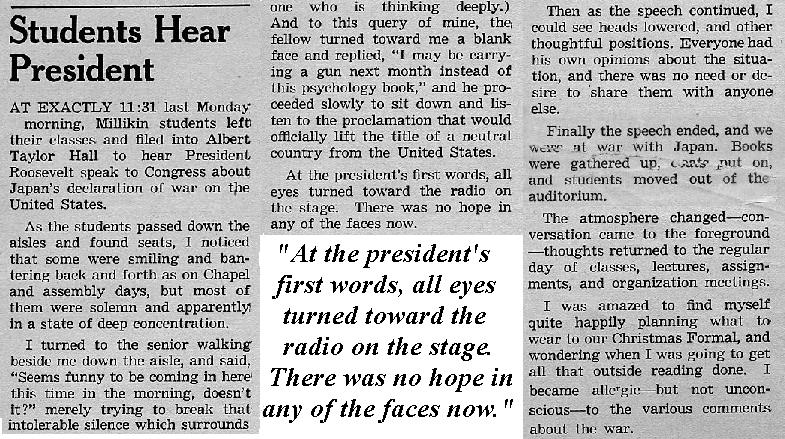 |
| The Decaturian 12 Dec 1941 page 1 |
Just as millions of other Americans were shocked by the Sunday afternoon news of the Pearl Harbor attacks, Millikin students and faculty likewise felt the effects of December 7th, 1941. The next morning, classes let out early so the entire campus community could gather in Albert Taylor Hall to listen to President Franklin D. Roosevelt's now famous "Day of Infamy" speech broadcast over the radio. As one senior remarked, it seemed "funny to be coming in here this time in the morning," his words would only foreshadow the many changes that lay in store for the Millikin community.
Who moved MU Cheese?
Millikin administrators, faculty, and students quickly began adjusting to a war-time footing, although some of the changes proved to be more challenging than others.
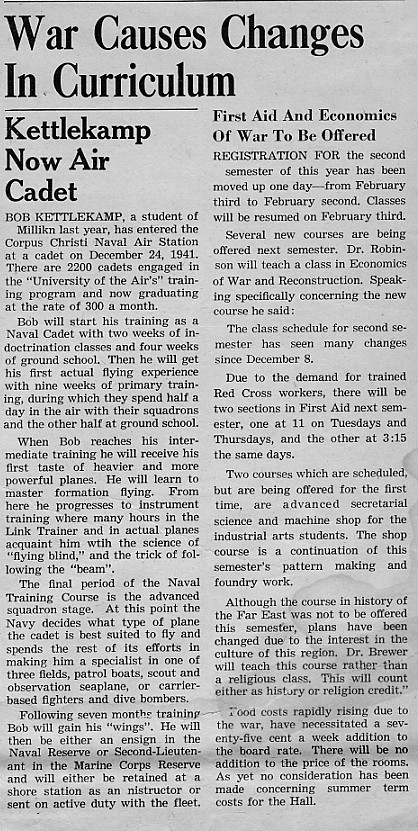 |
| The Decaturian 23 January 1942 page 1 |
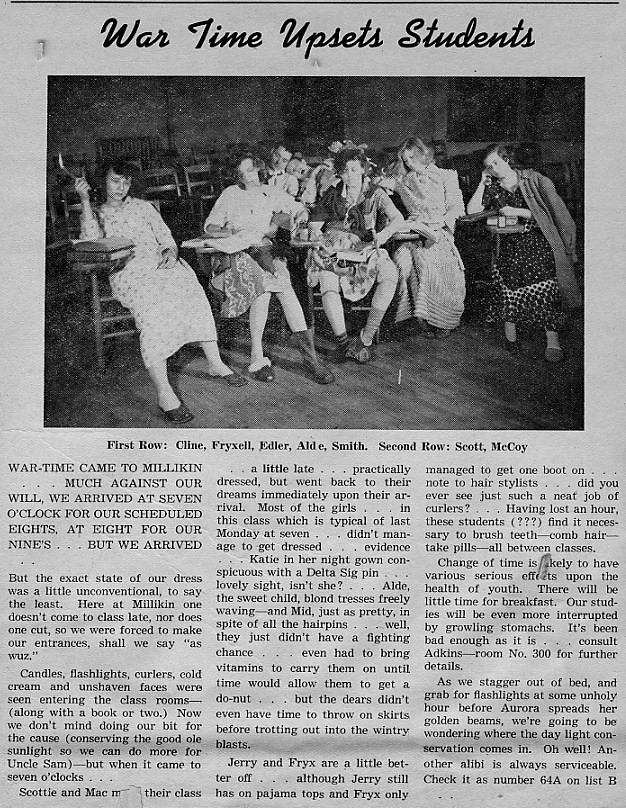 |
| The Decaturian 13 Feb 1942 page 1 |
Curriculum and schedule changes were only the beginning. Both male and female students began departing campus to do more for the war effort. Many joined the Armed Forces, others took defense production jobs and still others, civil service positions. All of these were actively recruited for on campus and in the student newspaper. Meanwhile, many took advantage of military reserve programs that would allow them to remain students for the time being.
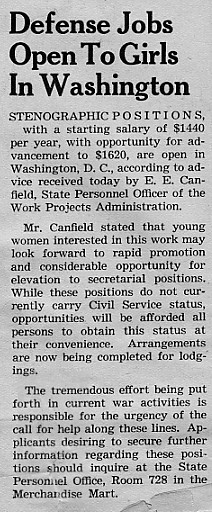 | 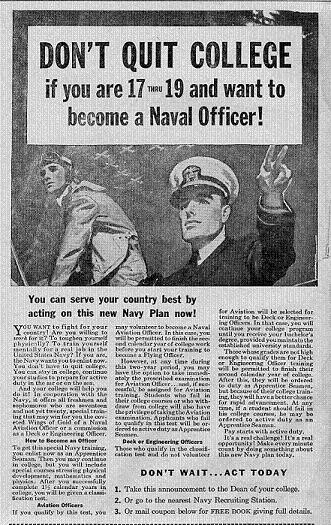 | 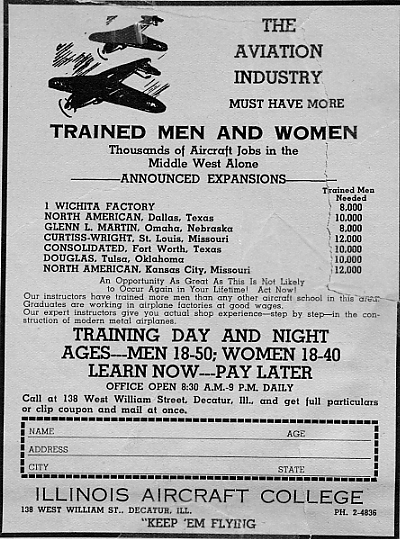 |
| The Decaturian 6 Feb 1942 | The Decaturian 24 Apr 1942 | The Decaturian 20 March 1942 |
One departure in particular carried with it some historical importance, although no one knew it at the time.
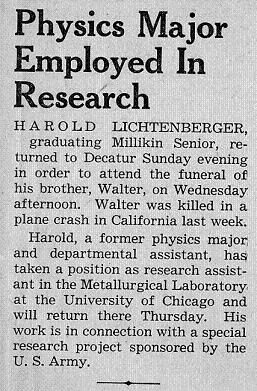 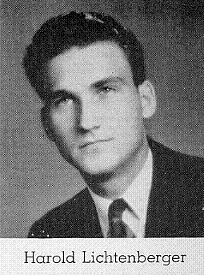 |
| The Decaturian 8 May 1942 page 1 |
When Harold Lichtenberger graduated early and headed north to the University of Chicago in 1942, the departure had little to no effect at Millikin, although the "research project sponsored by the U.S. Army," he was to participate in had global import. A member of Enrico Fermi's team, on December 2, 1942, Harold found himself on a platform above the "pile" on a converted squash-court, ready to pour a cadmium-salt solution onto it as part of the safety team. He was mounted above what became the world's first controlled self-sustaining manmade nuclear chain reaction which was the first giant leap toward the atomic bomb which helped bring about the end of the war in 1945. But it wasn't just Millikinites that were out trying to bring a quick conclusion to the war, the campus itself was soon to become part of the war effort.
US Army returns to Millikin
During the First World War, Millikin University served as a participant in the Student Army Training Corps, program, with over 600 student/soldiers enrolled and living in newly built barracks on campus in 1918, although before that first semester ended that war had come to an end and with it the SATC program. In early 1943, the United States began preparing to call up all those who had signed up as reserves and to train them, it would enlist college campuses across the country, including Millikin.
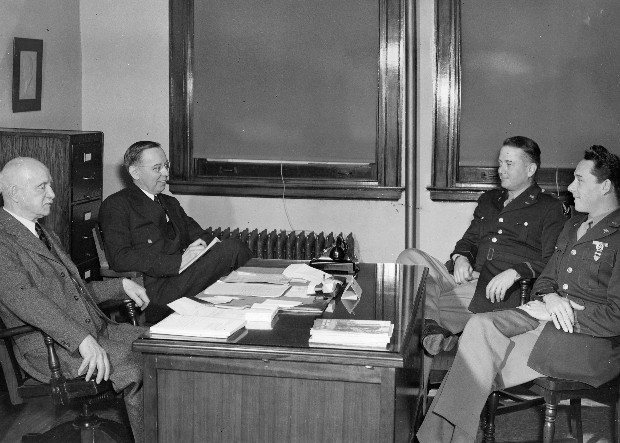 |
| President Hessler and Dean Miller meet with Army Lieutenants Winn and McGuire |
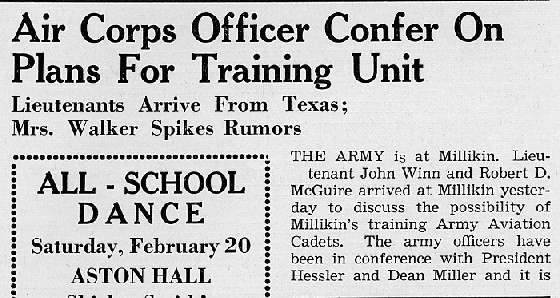 |
| The Decaturian 19 February 1943 page 1 |
Just as many of the male students were packing up and reporting for duty in the various reserve programs they had joined since the start of the war, the US Army was preparing to open up a cadet training unit right on the Millikin campus. The picture and article above sparked a flurry of activity over the next month, which even saw the female students of Aston Hall pack up and prepare to relocate so the Army could use the hall (although they were told to unpack at the last minute as the Army decided on quickly erecting wooden barracks and temporarily housing the initial cadets in the Old Gym).
The cadets arrived that March via the Wabash Railroad that stopped next to campus and let the first group disembark in the grass along West William Street.
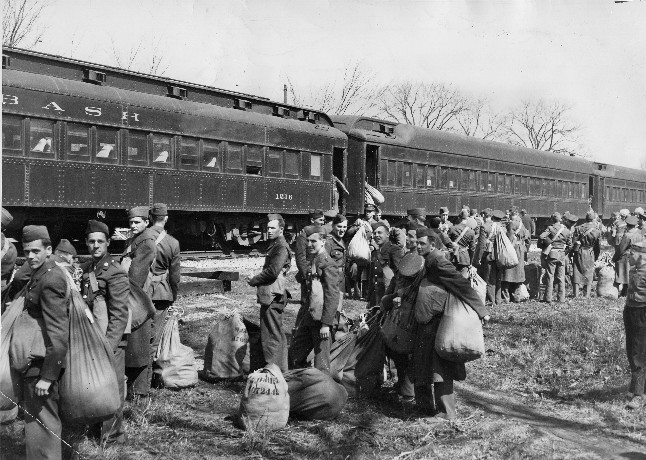 |
| This Decatur Herald & Review photo, dated March 28, 1943, shows the first group of cadets as they arrived near campus. |
With the arrival of the cadets, the 78th College Training Detachment (78th CTD) was born, and over the next year well over a thousand Army Air Corps cadets would come through and train at Millikin.
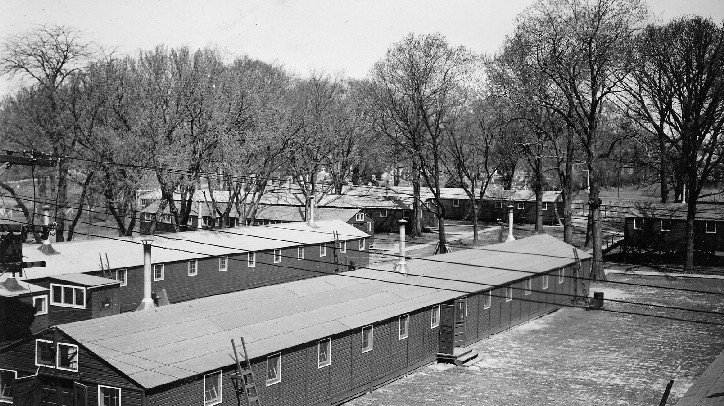 |
| The wooden barracks were erected quickly and came to dominate the northern part of the campus |
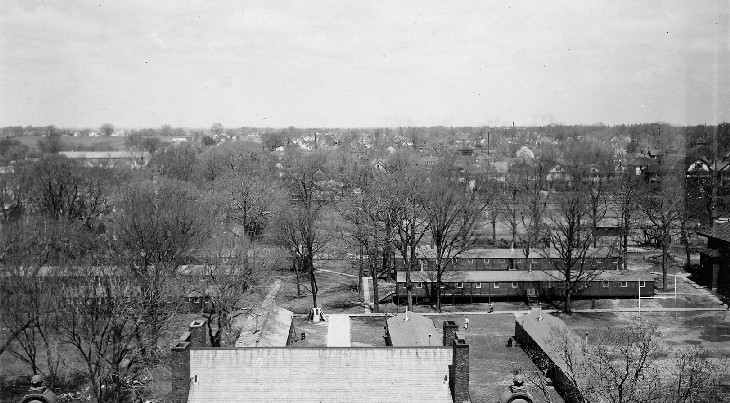 |
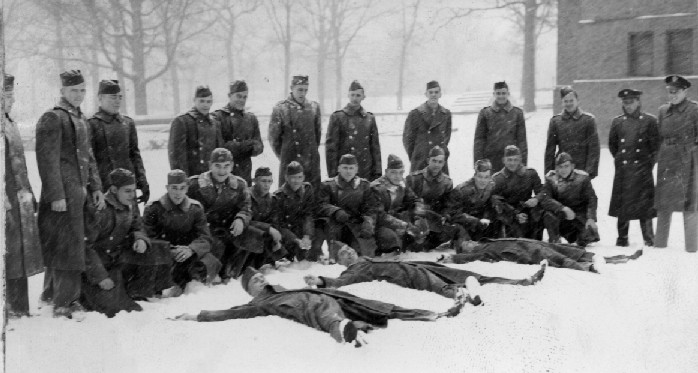 |
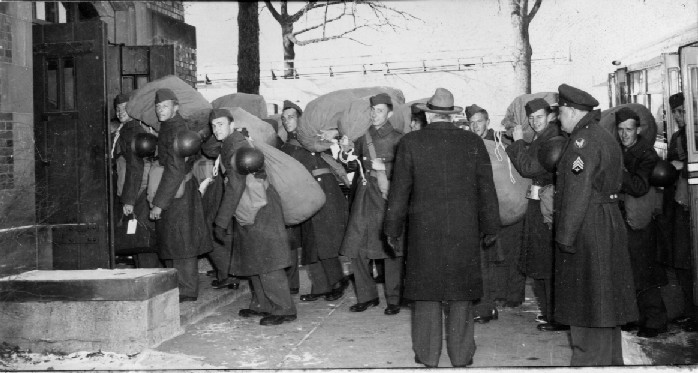 |
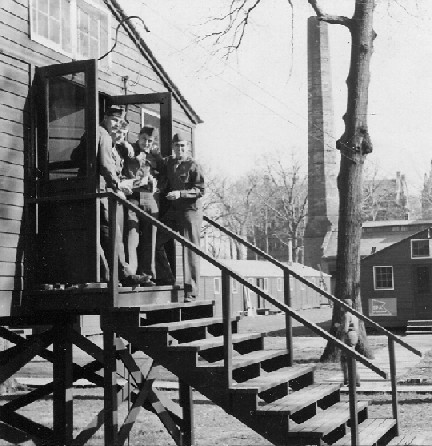 |
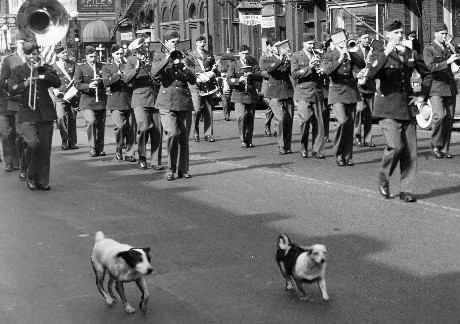 |
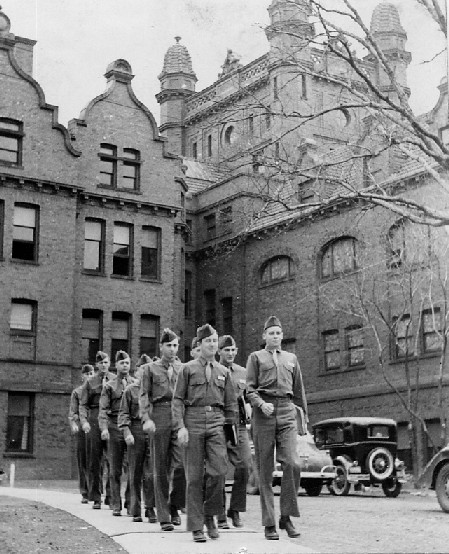 |
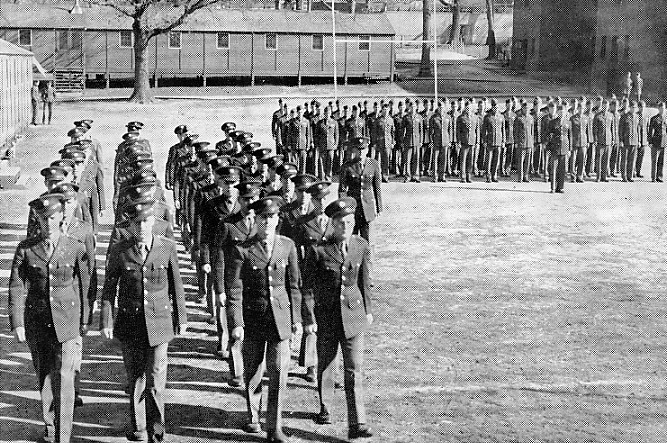 |
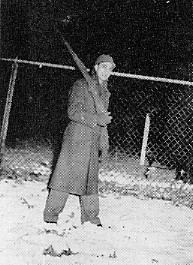 | 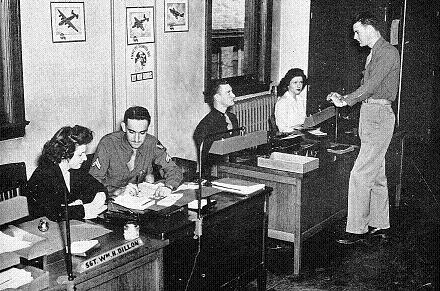 |
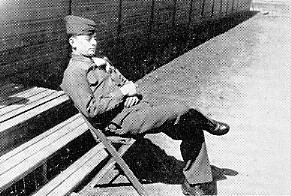 | 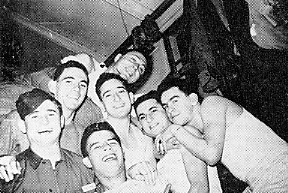 |
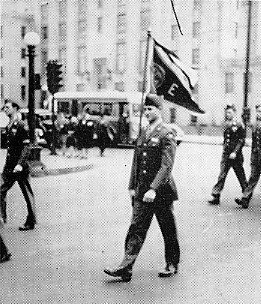 | 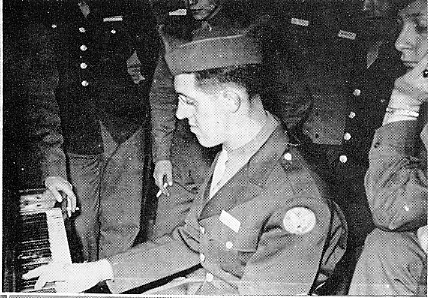 |
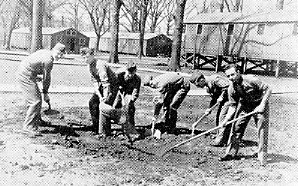 |  |
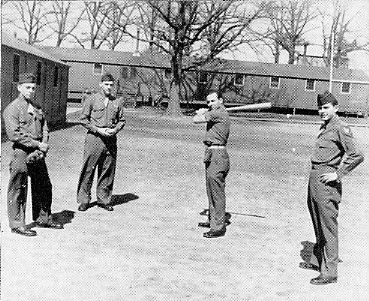 | 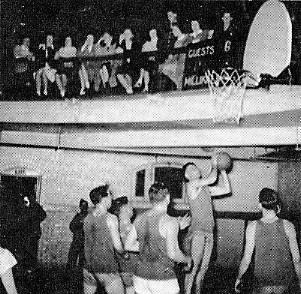 |
Wooden barrack buildings, drilling, and uniforms were not the only changes the 78th CTD brought to Millikin. What remained of the student body, now predominately female, grew concerned with how much change the cadets brought.
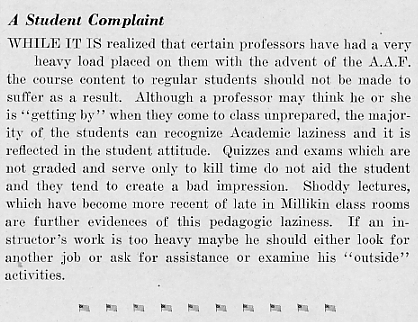 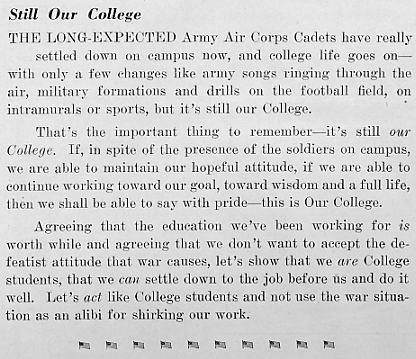 |
| editorials from The Decaturian 12 Mar 1943 page 2 |
One of their most important concerns was answered immediately though.
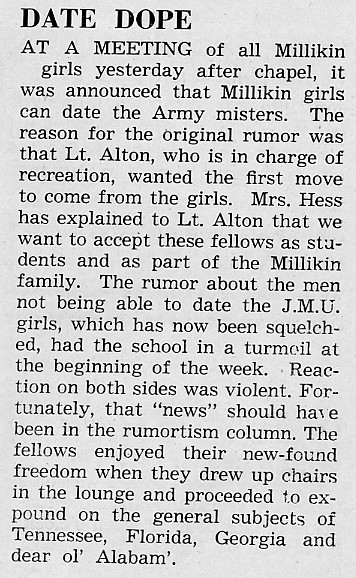 |
| The Decaturian 12 Mar 1943 page 1 |
And it was not very long before the campus community had adjusted to the changes and the Army was assimilated into culture of Millikin.
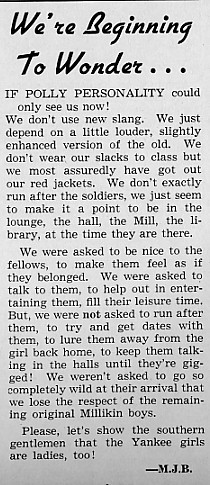 |
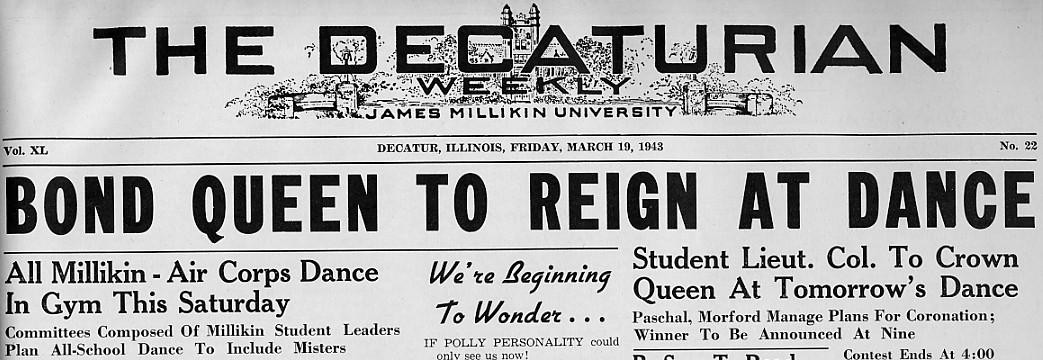 |
| both from The Decaturian 19 March 1943 page 1 |
By the fall of 1943, the Cadets were contributing their own columns and cartoons to The Decaturian
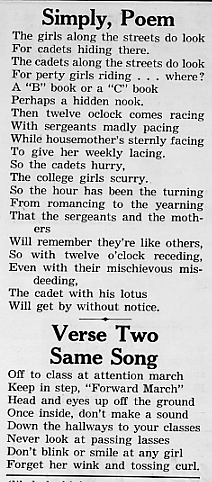 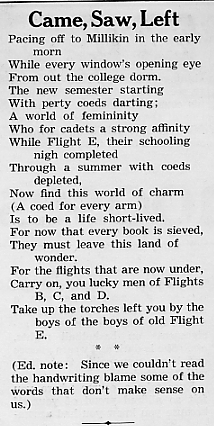 |
| These lyrics submitted by cadets to The Decaturian appeared on 24 Sept 1943 on page 2 |
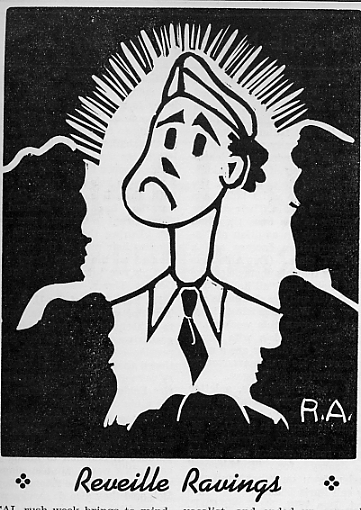 |
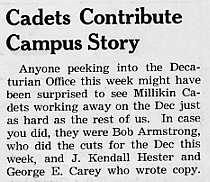 | The drawing above and short item at left also appeared in first issue of The Decaturian for the 1943-44 academic year (24 Sept 1943). That years numbers are loaded with unique campus perspectives from the continuing cycle of cadets that came through Millikin. |
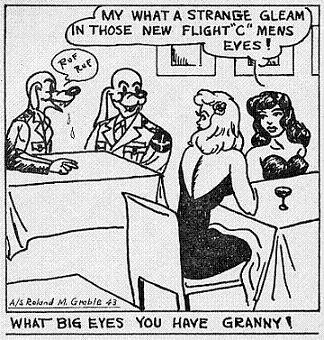 | 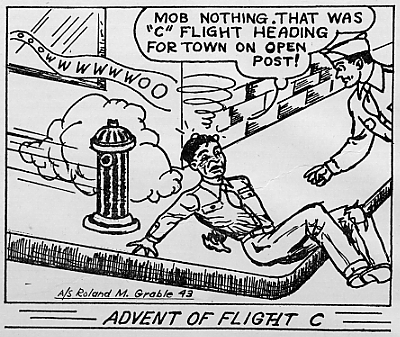 |
| Both cartoons from The Decaturian 8 October 1943 page 4 |
Not all of the 78th CTD's training took place on the Millikin campus. The cadets were all part of the Army Air Corps and their training included flight training out at the Decatur airport.
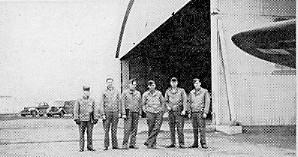 |
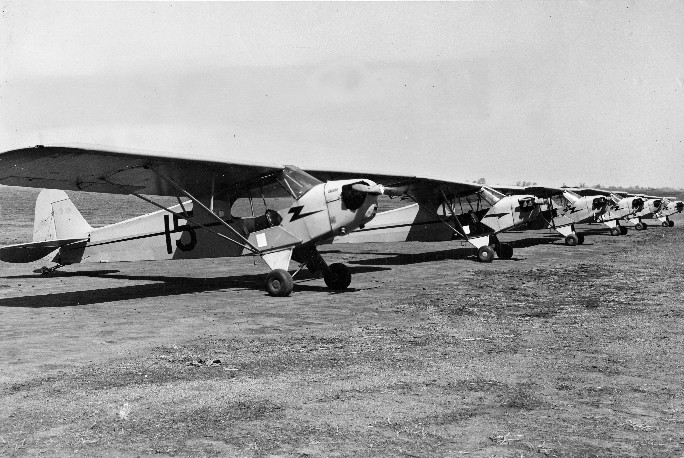 |
| These 6 (yellow) tandem seat Piper Cubs were used to provide flight training to the Army Air Corps cadets of Millikin at the Decatur airport. |
Forty Years of Football Finished in Forty-Three?
Due to the departure of so many of the male students in the spring of 1943, students returned to campus that fall to find there was to be no men's varsity athletic programs for the first time since the campus had opened in 1903. Even during the first World War, the SATC had fielded a football team that played an abbreviated five game schedule, but 78th CTD cadets had too much training packed into their short rotations at Millikin (and most of Millikin's usual opponent schools were in similar situations) so there would be no football at Millikin for the first time in its forty year history to that point. The lack of varsity athletics did not warrant a reprieve from having to pay the activity fee however.
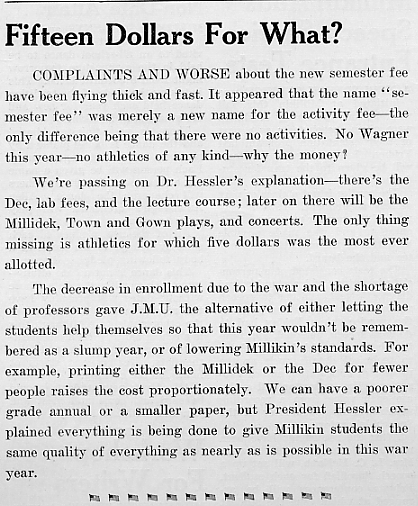 | 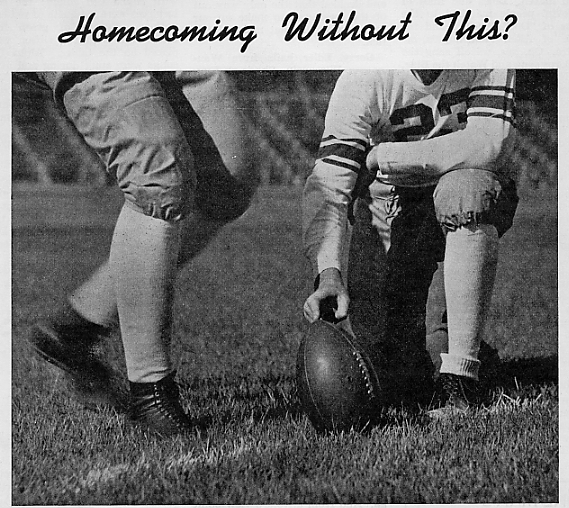 |
| The Decaturian 24 Sept 1943 page 2 editorial & page 1 image |
The "no Wagner," comment in the above editorial refers to Virgil Wagner, the star halfback and team captain of the 1942 football team, had helped the JMU gridders to two consecutive undefeated seasons in '41 and '42. Football would not return to Millikin until the fall of 1946(and Millikin would lose its first game that year, ending the 16 game winning streak from 1940-42). Wagner meanwhile served as a Naval Aviator during the remainder of the war and then became an original member of the Montreal Alouettes in 1946 and was inducted into the Canadian Football Hall of Fame in 1980.
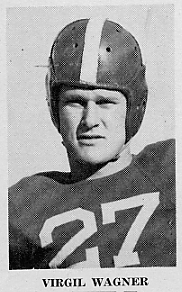
Other campus traditions soon felt the war's pinch as well. The 1944 Millidek yearbook had the fewest pages of any of the volumes until the final one was made in 1999. Homecoming activities were greatly curtailed in 1943 and there were no longer male fraternities on campus, which an article about Rush Week (renamed Hush Week do to the lack of activities) pointed out in the captured quote.
 |
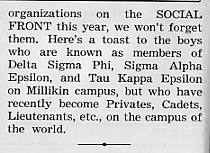 |
| The Decaturian 24 Sept 1943 |
|
| The Decaturian 24 September 1943 page 1 |
 |
| The Decaturian 22 October 1943 page 1 |
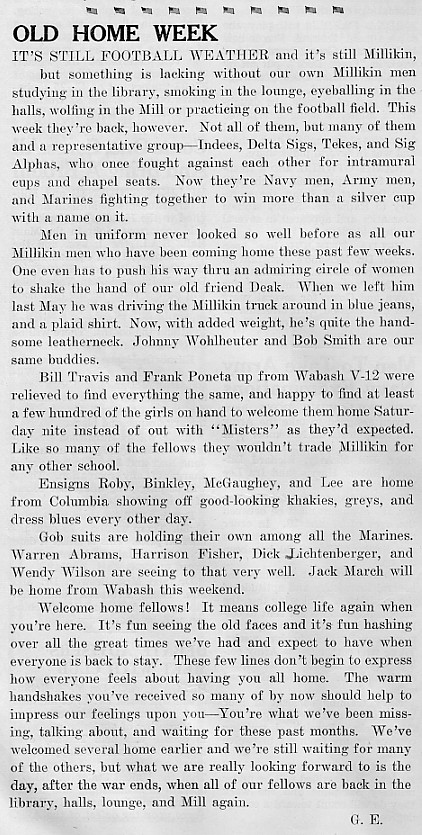 |
| The Decaturian 29 October 1943 page 2 |
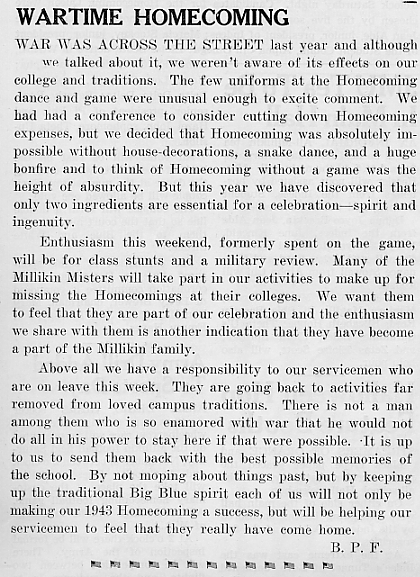 |
| The Decaturian 5 November 1943 page 2 |
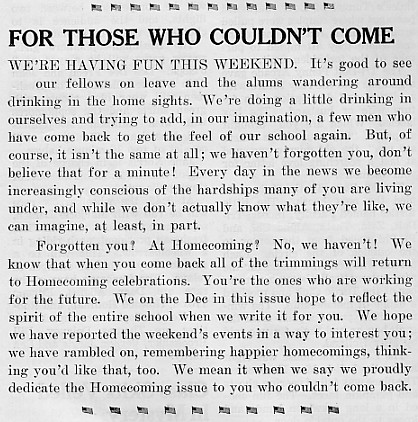 |
| The Decaturian 5 November 1943 page 2 |
Another humorous example of changing traditions is provided by a glance at the weekly rumor mill column in the Decaturian known as the "Dust Pan".
 |
| The Decaturian of the late 30s and early 40s had featured the rumor column, "Dust Pan," with the graphic of "Mr. Squeegy"(above) who's down on all fours trying to sniff out the campus rumors. |
 |
| In October of 1943 though, he was replaced by "Mrs. Squeegy" (above) with the below explanation. |
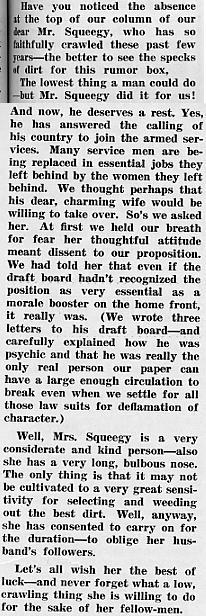 |
| The Decaturian 1 October 1943 page 3 |
By the end of the academic year, the 78th CTD was closing up shop, with the final cycle of cadets departing in June of 1944. The empty barracks remained as reminder of their campus presence until the last of these was torn down in the early 1960s.
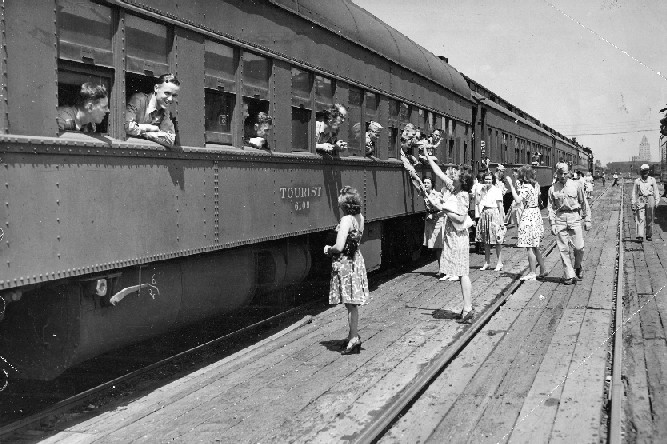 |
| The final training flight departs Decatur from the Wabash station as Millikin students bid farewell from the platform. |
Female Students Serve As Well
As shown above, many female students left Millikin shortly after the war started to take lucrative positions in the Civil Service or in war materials production. Others responded to serve in uniform, and the Armed Services actively recruited them on campus and in the Decaturian
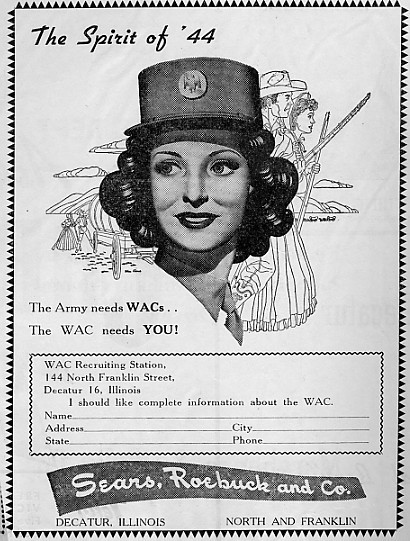 |
| Advertisement from The Decaturian 26 May 1944 page 3 |
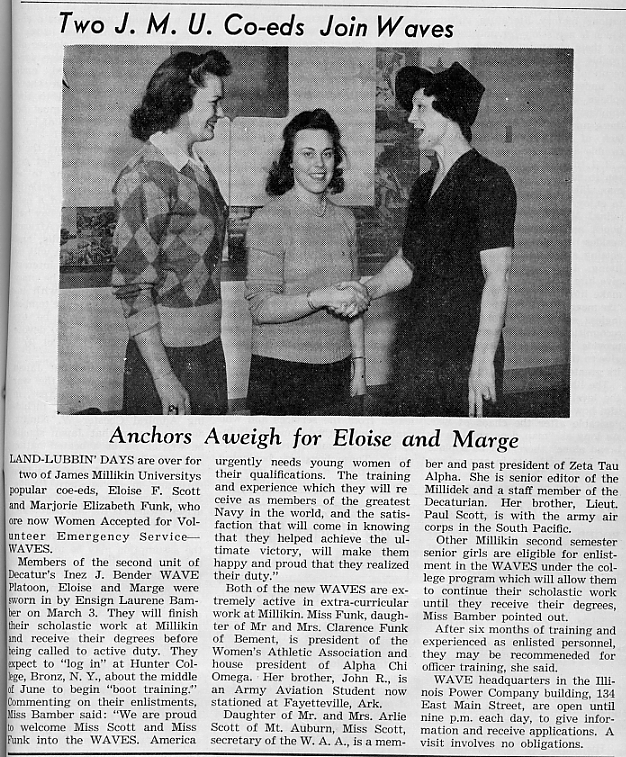 |
| The Decaturian 10 March 1944 page 1 |
Millikin Motivates Morale and Morals
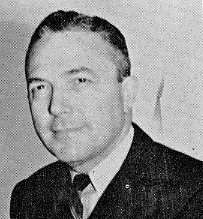 | 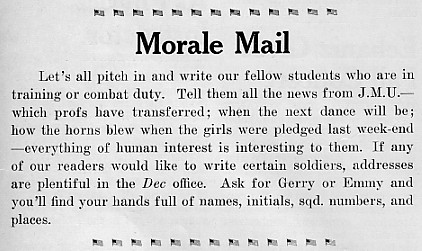 |
| Clarence E. "Fuzzy" Sutherd | The Decaturian 1 October 1943 page 2 |
As physical training instructor for the Army Air Corps cadets, Coach Sutherd earned the nickname "Sadie," which was short for "Sadistic." But to former Millikin students serving around the globe, he was still "Fuzzy," the football coach who kept them all regularly updated on campus happenings through his frequent "M" mail letters (which stood both for Millikin and Morale). Although the archives doesn't hold any copies of these outgoing letters, The Decaturian issues during the war are loaded with the responses that came back to Millikin from these students & alumni then in uniform. A sampling appears below.
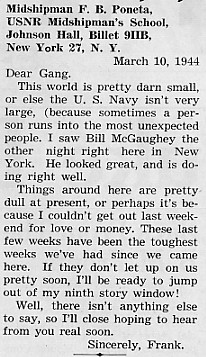 | 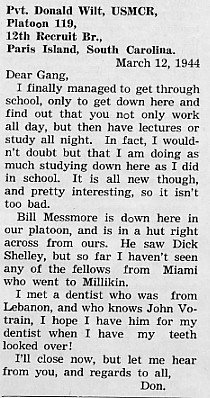 |
| The Decaturian 24 March 1944 page 2 |
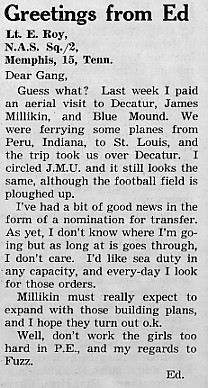 |  |
| The Decaturian 13 October 1944 page 2 |
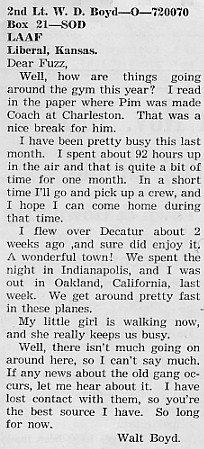 | 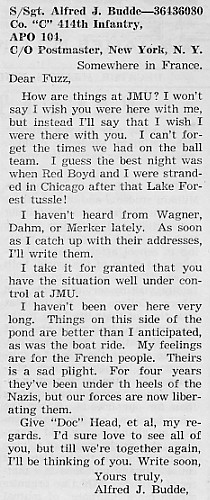 | 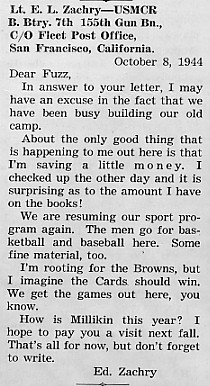 |
| The Decaturian 27 October 1944 page 2 |
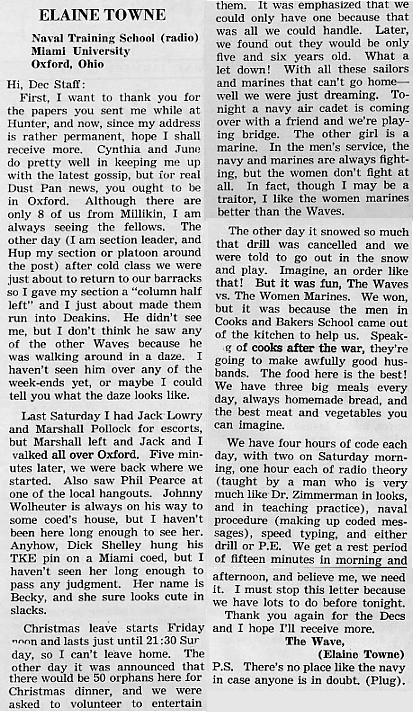 |
| The Decaturian 7 January 1944 page 2 |
Millikin wasn't just active in promoting morale amongst its service members though. It was also actively present in attempting to provide a moral compass to the city of Decatur, as the following examples about the treatment of Japanese-American citizens indicate.
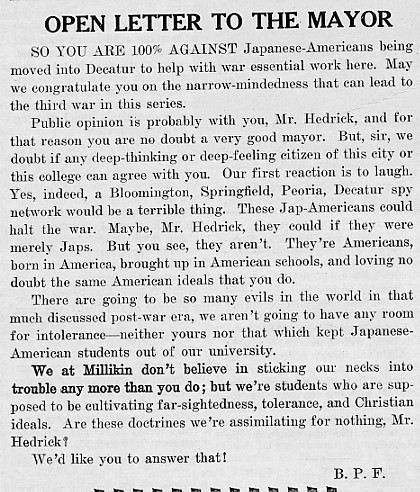 | 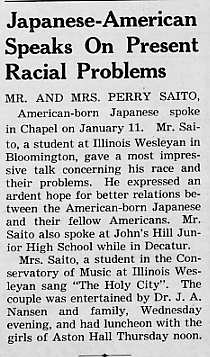 |
| The Decaturian 8 January 1944 page 2 editorial | The Decaturian 12 Jan 1945 p1
|
 |
| The Decaturian 13 April 1945 page 4 |
Though $100 was raised by students for the above mentioned scholarship, none of the three Nisei students that applied for it decided to come to Millikin.
Faculty & Staff Get Into The Act As Well
Students and alumni weren't the only ones contributing to the war effort. Many faculty and staff members left Millikin for military service (as in the cases of Coaches Wells and Roy below top), others left to serve in government positions (as in the case of Dr. Hammaker below left), and still others did what they could right from Millikin (as in the case of Dr. Robinson below right)
 |
| The Decaturian 20 March 1942 frontpage |
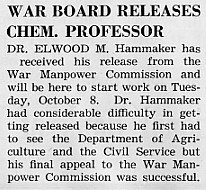 | 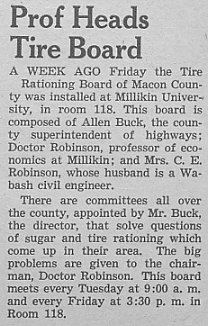 |
| The Decaturian 24 September 1943 page 1 | The Decaturian 13 March 1942 page 3 |
Dr. Robinson wasn't the only one contributing to the war effort right from the halls of Millikin itself. As rationing of gasoline, tires, food, and other items forced lifestyle changes throughout the country, Millikin students and staff did their part.
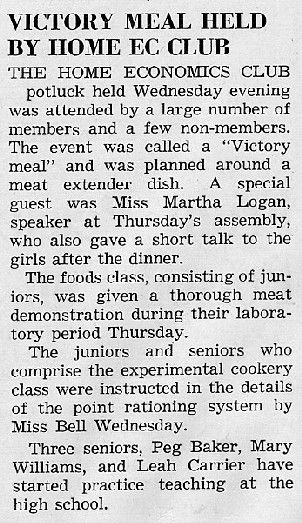 |
| The Decaturian 19 February 1943 page 1 |
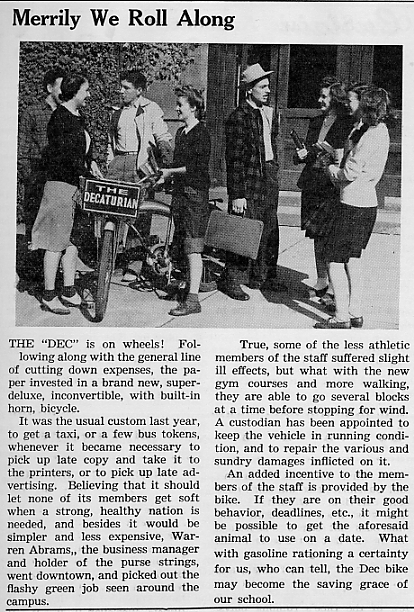 |  |
| The Decaturian 23 October 1942 page 3 | The Decaturian 22 Oct 1943 |
Lest We Forget...The Thirty-Three
Millikin University, like most other communities in the United States, lost some of its members in the war. A total of 33 Millikin men gave their lives in World War II, and just as they remembered them at the 1945 Homecoming, we remember them here.
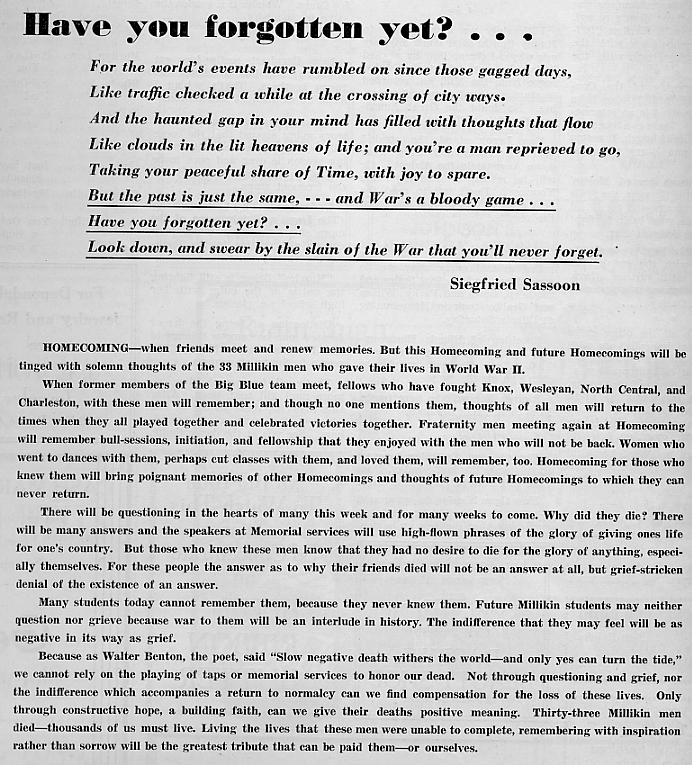 |
| The Decaturian 2 November 1945 page 3 |
Below you will find the names of the Thirty-Three. For those for which we have pictures, one is provided, while for the others, a gold star is displayed. These names, service branches, and dates of death were drawn from the November 2, 1945 Decaturian page featured above.
 |  |  |
| Kenneth Beall Navy ~ 30 Oct 1942 | Byron Broeker Engineers ~ 1 Apr 1945 | Joseph Brownback A.A.F. ~ 27 Dec 1941 |
 | 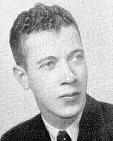 |  |
| Merlyn Carley A.A.F. ~ September 1945 | Isaac Carmack
| Wayne Carter A.A.F. ~ 20 Sep 1944 |
 | 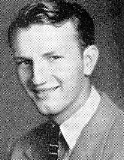 |  |
| Leonard Cassell A.A.F. ~ January 1942 | Robert Clayton A.A.F. ~ 5 May 1945 | Robert Conner Navy ~ 15 Jun 1942 |
 | 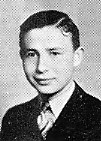 |  |
| Thomas Delaney Infantry ~ December 1944 | Richard DeWitt A.A.F. ~ April 1944 | James Donovan Paratroops ~ June 1943 |
 | 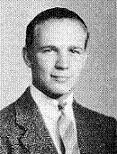 | 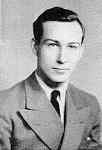 |
| Max Furman R.C.A.F ~ 16 Jul 1943 | Robert Gaither A.A.F. ~ 30 May 1944 | William Garvin Infantry ~ 6 Aug 1944 |
 | 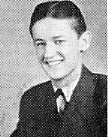 | 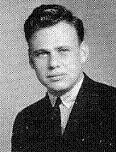 |
| Ray Gelbach Navy ~ March 1945 | William Grant Marine ~ December 1943 | James Gray A.A.F. ~ June 1944 |
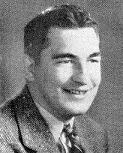 |  | 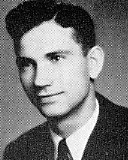 |
| Jack Hagerty Navy ~ June 1944 | Harry Helm Infantry ~ 21 Jun 1944 | Wendell Jones A.A.F. ~ 29 Oct 1944 |
 |  |  |
| James Kintner A.A.F. ~ 13 May 1945 | Edward Lahniers A.A.F. ~ 17 Aug 1945 | Joseph McLaughlin R.C.A.F. ~ 10 Dec 1942 |
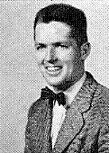 | 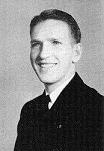 | 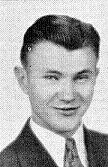 |
| Ed Meade R.C.A.F. ~ July 1943 | John Reep A.A.F. ~ July 1943 | Merle D. Scott Navy ~ November 1944 |
 | 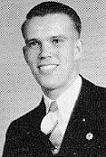 | 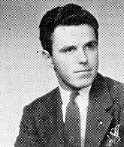 |
| Ross Sensenbaugh Army ~ November 1944 | William Stecker Navy ~ 30 Jun 1944 | Robert Taylor Infantry ~ 16 Nov 1944 |
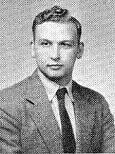 | 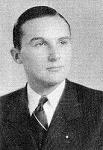 | 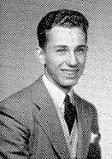 |
| William Travis Navy ~ 18 Jun 1944 | James Weatherford A.A.F. ~ 10 Jul 1945 | Wayne Wilson A.A.F. ~ 24 Mar 1945 |
Returned With Stories To Tell
Although the Thirty-Three failed to return to Millikin, hundreds of veterans did come to Millikin, some to continue where they had left off and others coming for the first time. The impact of these veterans on the post-war campus is a story for an entirely new exhibit, but one of the things they brought back and shared were stories of what they had done during the war. A small sampling of these stories is offered here below.
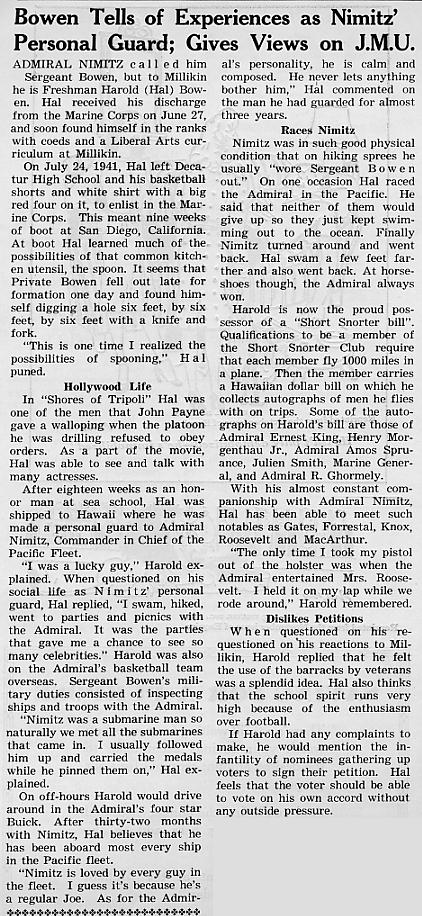 | 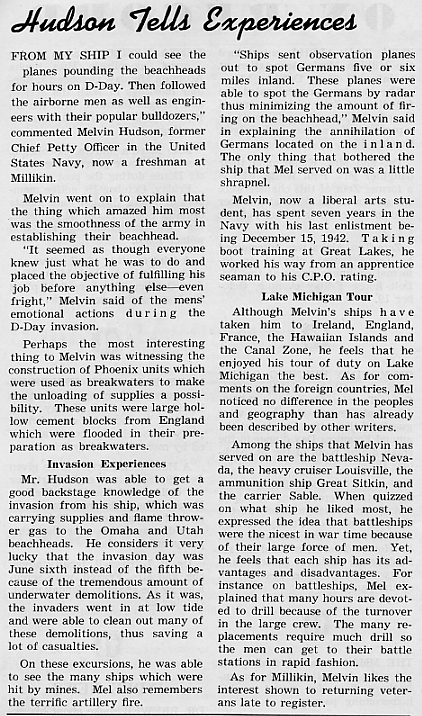 |
| The Decaturian 12 October 1945 page 4 | The Decaturian 26 October 1945 page 4 |
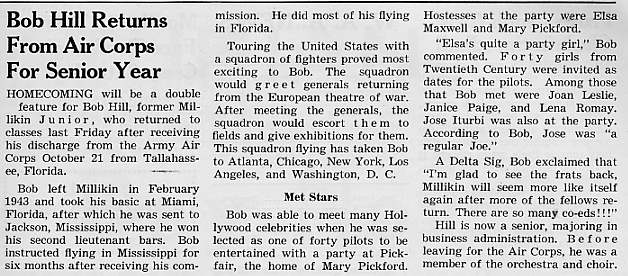 |
| The Decaturian 2 November 1945 page 5 |
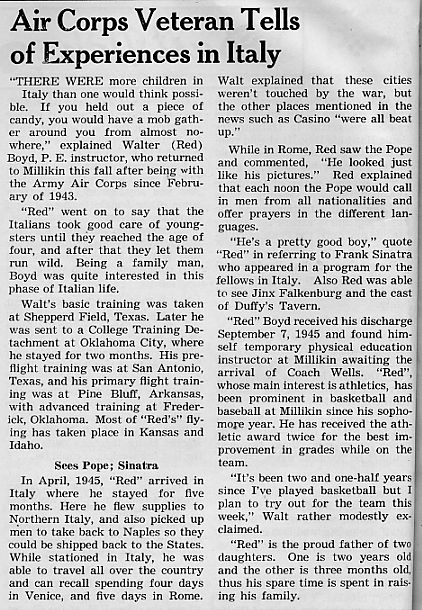 | 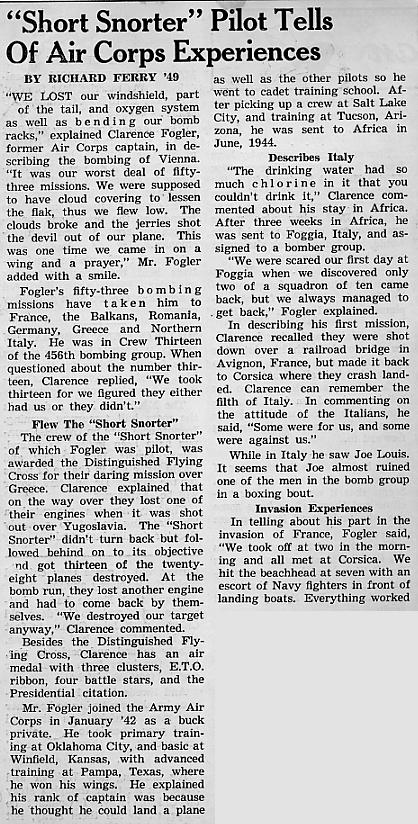 |
| The Decaturian 16 November 1945 page 4 | The Decaturian 30 November 1945 page 4 |
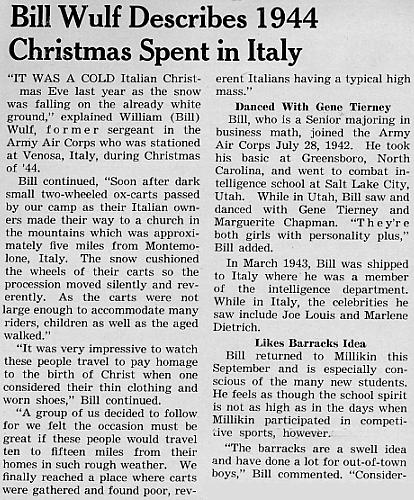 | 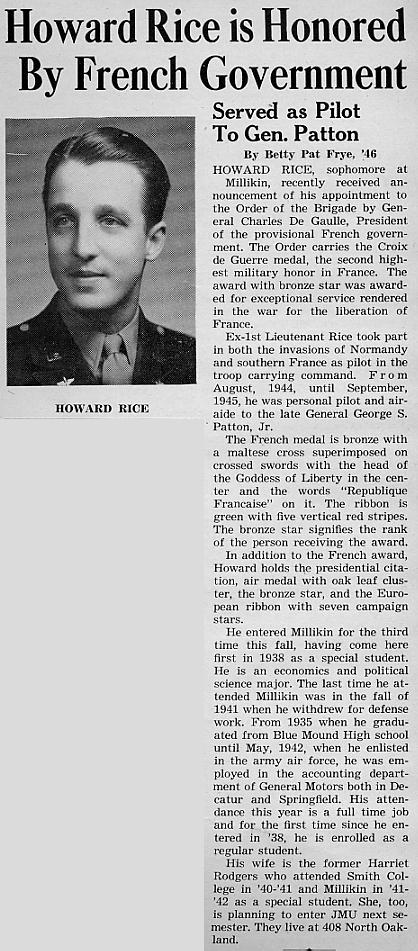 |
| The Decaturian 14 December 1945 page 4 | The Decaturian 11 January 1946 page 1 |
This Exhibit was researched and developed using source materials found within the Millikin University Archives & Special Collections.
This page created August 30, 2007 by Todd Rudat
Last Modified on February 28, 2008
Copyright: Millikin University Board of Trustees
